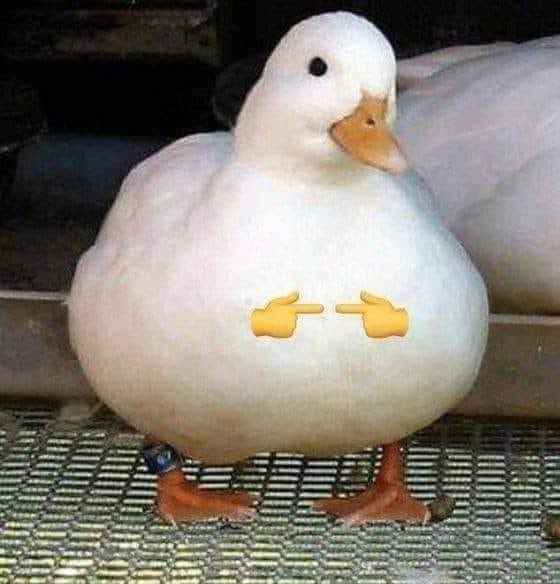In this thread, post what you’re working on! Guerilla gardening? eBiking? planting/pruning? Let us know!
I have a small backyard tree nursery which I use to grow rare species I give away to friends and acquaintances who have space to plant them.
A lot of people don’t realize that climate change means species that we grew for shade historically won’t necessarily thrive in the future, and since we usually hope the trees we plant will live for 20+ years, we need to plan ahead. So I’m testing which species can be heat and drought tolerant enough to provide shade and other environmental benefits in the future.
This is awesome. Are we best friends now? I have a background in plant tissue culture, especially micropropagation of woody species. I don’t do that professionally anymore, mostly because I have other skills that the job market likes better. However, I always have a propagation experiment of some kind going.
I think you are doing great work and your vision is very clear-eyed. Even from a grubby capitalist perspective, tree nurseries are a good future-proof business because climate changes are going to necessitate a lot of re-planting. It’s that kind of local knowledge you are making that if more widespread will help us develop the resilience to maybe, just maybe, get through the next couple of centuries.
Cool! I don’t have much experience with the more technical forms of propagation, so I usually just grow from seed. That could be useful though, there is a species I’ve become interested in recently that grows great but doesn’t produce seed locally for some reason, so it’d be interesting to know what my options are there.
If by chance you are in Northern California I’d be interested in collaborating. I could also share what species I’m growing if that interests you but they’re somewhat specific to my local climate/soils.
Ahh, sadly, I’m in Colorado, so any collaboration would have to be remote and more of a knowledge-share than a direct collaboration, due to the different ways climate change will impact our regions. I’ve found some really good tree-suitability studies for Albuquerque area and have been paring down the list of most-suitable trees for that region. The thought process is that over time conditions here in central CO will come to resemble current-day ABQ more and more.
Seed-grown trees are the correct method for specific planting types like ecological restoration plantings, you want the genetic diversity. For formal street and yard tree plantings, clonal propagation can be preferred so you know the form the tree will take in a space-constrained setting. Many trees have bushy, shrubby genotypes and taller forms with proper canopies, so seeds become an undesirable crap-shoot when space is tight.
So, nothing wrong with propagating from seed, in fact it has many benefits in the right setting. The micropropagation is most useful when you need strict control over the genotype. It all depends on your vision of where you want the trees you grow to be planted.
Always happy to talk plants. Feel free to DM me if you feel like diving deeper someday. If there are particular species you want to propagate by cloning, I’d be happy to help you find protocols that show how to start figuring out the process for each. That’s the hard part about tissue culture, you have to develop protocols specific for each species. There are general principles, but every genotype responds differently in culture, so it’s a bit of intense R&D to really get the Xerox machine going.
Well there may be more overlap than you think. We’re both semi-arid climates with increasing climate-related heat and drought impacts. Your climate might rule out some of the more frost sensitive plants, and truly Mediterranean species that can’t handle the summer monsoon. And you’ll be able to grow some slightly more heat and drought sensitive plants than we can.
If you haven’t seen this document yet, it’s a great resource for Albuquerque and the greater SW. https://www.nature.org/content/dam/tnc/nature/en/documents/Climate-Ready-Trees-Report-Nov2020.pdf
Just be sure you don’t get ahead of the current climate. Some trees that may thrive in the coming decades might not be able to make it through a colder than average winter. It’s easy to assume we won’t have those anymore but they are still possible, just less likely each year. It’s OK (and fun) to push the boundaries a little but we have people here trying to plant mangoes with the assumption we won’t have frost again which is a bit optimistic.
The species I can’t grow from seed is Cupressus/Hesperocyparis (depending on your preferred taxonomy) guadalupensis if you have any tips there!
Thanks for the link to the Nature report. That’s been my main info source for the little side project I mentioned. There are many arid-adapted trees from further south that will almost, but not quite, thrive along the Front Range due to frost sensitivity. I’m trying to observe as many of these species in real life as I can to see which might be most aesthetically desirable to a CO homeowner or municipality that wants to grow a water-wise specimen tree 10 years from now.
I had a feeling the species you were having trouble with germinating from seed was a gymnosperm. Everything you said just fits the profile of the special challenges they offer. As far as tissue culture, it’s a bit of an advanced challenge since the only method that seems to work for large scale multiplication in gymnosperms generally is embryo culture or somatic embryogenesis. Frankly, those methods are hard and require a properly equipped lab. There’s a lot of tissue culture you can do in a clean home kitchen, but somatic embryogenesis requires lots of growth regulator chemicals and the right equipment to maintain stringent sterility, not just cleanliness.
So, from a practical perspective, ‘macropropagation’ (just rooting larger cuttings really) is preferred for cypresses generally. However, even that is more challenging than most other trees.
Here’s a typical somewhat current paper breaking down the extra care needed to get cypress cuttings to take root. https://riojournal.com/article/52947/
If you are ambitious or just curious, this one shows the typical protocol needed for embryo culture. It also explains in the intro the biological reason why your seed germination rate is so low. https://www.ncbi.nlm.nih.gov/pmc/articles/PMC6214434/
The last paper may guide you to finding or creating the conditions needed to get seed batches that germinate at a decent rate, yet another strategy to overcome the difficult propagation of these species.
These are only a jumping off point, the literature is massive on this topic. Hope it helps. Thanks for engaging, it’s fun.
Thanks, I’ll check out the papers!
This is so interesting! When I was growing up we had a small orchard in our backyard with a wide variety of apples, plums, pears, etc. We used to do something similar and give out cuttings to anyone who asked so there’s clones of those trees all over the area as far as 3-ish hours away that I know of. When us kids grew up my parents sold the house but my Dad took cuttings from all the different apple trees and spliced them onto a root stock at the new house to make hybrids with all the varieties from our old house. Unfortunately my parents both passed and before my partner and I were able to move back to the family home someone who was helping us out with the yard work ran over the hybrid-apple tree with the riding lawn mower 😑 so its no longer with us either.
Very cool story but sad ending. I’ve seen many a tree lost to lawn mowers unfortunately. Maybe you could try reaching out to some of those people who your dad gifted trees to and see if you could bring them back?
to respond to my own post, i have set up a solar panel to charge a Jackery (mobile generator) that I am going to use to recharge my ebike when the charge runs down. photos forthcoming!
we’ve also got seven birdfeeders up and running on our property, and two bee hotels. it’s been over 100 degrees F where i live (rural western Colorado), so we repurposed an old hummingbird feeder to be a bug waterer, and used our local Buy Nothing group to find one of those pet watering bowls that refills from an attached jug. we filled the bowl part with rocks so bees have a place to land and filled the remainder with water, so now our bee hotels are right next to a bee waterer, too!
here’s a link to the image since i can’t figure out embedding an image, embarassingly.
bee hotel and a hummingbird feeder: https://flic.kr/p/2oRYzjN
Big one right now for me is regenerative gardening. Ive gardened for years and have always practiced some of the permaculture principles, but this is the first year Im gardening with the explicit goal of regenerative gardening.
TIL, very cool! https://www.wellandgood.com/regenerative-gardening/
Learning to make, repair and upcycle my own clothes instead of relying of badly made polyester fast fashion that doesn’t fit well. Also getting my fitness up so I can bike instead of drive which is difficult because I live in an absurdly hilly area.
Love this. I have been thinking on it myself just how rubbish most of the clothes I buy are, not to mention concerns about exploitation of the people making them.
Is there a clothes making community here on SLRPNK? I’ve started to return to clothes making recently (knitting, sewing, dyeing) and would love to learn more. I’m spectacularly bad at it and it’s so much fun.
I am also interested in sewing. Sometimes I buy second hand stuff online and then it doesn’t quite fit. If you can just change it yourself that would be awesome. Or just make your own from scratch. But I don’t have a sewing machine and don’t want to buy one because I am not sure I will stick with it.
Same for mending and sewing clothing. Except I’ve run aground a bit on my own perfectionism. I’ve somehow talked myself into making a pattern block for my butt so I can make the most optimal pants and shorts, but making a block is an Ordeal with Math involved and I haven’t had the bandwidth to accomplish it yet.
I’ve been working on a bodice block, I know your pain.
I’m actually working on myself. Actively getting fit, building strength to hike and spend more time in nature without pain. Changing my social media habits so I can focus on useful communities instead of mindless scrolling through eternal doom… Planning what to plant in my backyard next
Just wanna say good for you for working on yourself and I wish you the best of success. And I feel ya on social media communities, the doomscrolling is horrible. Good luck.
Today I’m building a bat house and fixing up two laptops to give away. Both of these are zerowaste projects (the bat house is all second-hand lumber, and the laptops are ewaste that will find good use with a refugee resettlement program). On the back burner I have a desk I’m restoring also to give away - I find stuff on trash day, fix it up, and put it up on our local Buy Nothing group. If possible, I try to give the person receiving it the choice on color of stain etc.
Question for ya: I grabbed the Buy Nothing app to check it out… and it immediately asked me to subscribe? And it won’t let you use features until you do? This seems like the opposite of a good platform. Is it worth using anyway?
To be honest, I’ve only ever used Buy Nothing and Everything is Free groups on facebook (my only use of the place now) so I can’t vouch for the app. I don’t like specialized apps and giving away information, so that wouldn’t appeal to me either. In the last couple years I’ve been way more active on my local Everything is Free page but which is the nicer community (or whether an EIF page exists) is going to be very dependent on your location. All I can say is to check them (both) out and see if they’re any good!
I really hope you have a good experience with it, I’m a huge advocate for these groups and am always happy to talk about them! And feel free to stop by https://slrpnk.net/c/zerowaste if you’re looking for similar stuff.
Hi there! Looks like you linked to a Lemmy community using a URL instead of its name, which doesn’t work well for people on different instances. Try fixing it like this: !zerowaste@slrpnk.net
We’ve got a vegetable garden going with tomatoes, pepper, kale, cabbage, onions, and eggplants.
Also got a new pollinator garden bed started this year with Butterfly milkweed, a few different species of aster, sunflowers, blanket flower, rattlesnake master, goldenrod, purple prairie clover, Mexican hat coneflower, and some blazing star. Also scattered some sage and prairie clover seeds in a few other spots on our property. I’ve been sitting out documenting the various wasps and bees that visit us. We’re also planning on harvesting seeds from stuff and giving them away/starting plants from them next spring to give away.
Got some logs from our neighbors that I’ll drill some holes in for the mason bees.
We’ve got some old furniture that we don’t want anymore that I’m trying to touch up a bit before giving it away to a local charity that gives people coming out of the foster system stuff like furniture and appliances to help them land on their feet.I’m helping urban farmers grow food to make meals for people in need.
Mending clothes and a tiny bit of guerilla gardening. I’m looking into tablet weaving atm
I help run a communal compost heap, it’s easy work and saves a lot of trash from going to the trash furnaces.
I’d like to learn more, how is it organized?
We got a place we can use on a square in our quarter. There’s small houses and apartments nearby, so that’s people who can’t really compost at home easily.
We have a compost bin with three bays of about 1.5 m³ each. The tools for turning are in whichever bay is most empty (pitchfork shovel sieve and broom). The bins have lids and we have fenced it. Then fence is to prevent trash in and around the bins, we did get a little before. Outside the fence we also have four big planters with vegetables and flowers in front. Ideally I’d want some water to water the planters and so people can rinse their buckets.
It’s intended for the people of our part of town, until we get so much we can’t compost fast enough. In practice everyone who wants to join can. They get a 25 L bin to collect their kitchen scraps. There’s two times a week people can come drop off the bins, an hour Tuesday evening and an hour Wednesday afternoon. The sorting rules are on the bins and an information plaque on the fence. We allow raw vegetable scraps, dead house plants, herbivore poop; we don’t allow cooked food, cat poop, egg shells (salmonella risk), “recyclable” plastic (can’t see if it’s the correct kind of recycleable). The bins are large enough to be practical but also small enough that a lot of people can help.
So the work us volunteers do is: open and close the gate; check the bins for wrong stuff; turn the compost when a bay is almost full (or whenever I want); get the small bins to people who want to join; care for the veggies or keep the area relatively neat. There’s five of us so I only have to be there on time like twice a month tops.
That it’s only open twice for an hour has also made it a bit of a social thing, some stay to chat.
City has asked if we want to start up heaps in other parts of town too. Probably will if we find local volunteers there.
I think that’s a great idea, how did you get started?
A neighbour I didn’t know started it. I just volunteered to help, she moved away, I have four more volunteers helping so it’s nearly no work individually. It’s a citizen initiative, but we did ask the city for free stuff, namely an Ecoo compost bin and permission to use that spot.
We’re on vacation and it’s 100% public transportation from beginning to end, the kids are doing pretty good with schlepping their bags on and off trains.
You don’t have to be specific but I’m curious what region you are in and how you are finding it? We did this years ago in Northern-Central Europe and it was such a nice change from the usual method of driving everywhere in North America.
We are from Scandinavia and right now we are in the Alps, later we are going to Italy.
There’s been work on the railways that has changed our itinerary and caused some delays but otherwise it has been ok.
We are not huge travelers but previously we’ve driven in our little car or flown and rented a car (ie Iceland, visiting family in the US). My main concern was changing so many trains with children and luggage but they’ve done really well (they are tweens). They are used to trains though.
Pros:
- I don’t have to drive for hours and hours (I am the only driver in the family)
- not having to go through security, also we have been inside the Schengen area so no passport controls
- you can get up and move around in the trains and it is more comfortable than in a plane
- not as much queueing as at airports
- night trains can save an overnight at a hotel
- you get to see the landscape you are crossing, and even if it is just fields or industry it is better than freeway or clouds
- other travelers seem more chill and less stressed than when flying
Cons:
- you can’t bring as much with you as in your car and you have to handle your own luggage when changing
- there’s still waiting around and risk of missed connections
- it takes more travel time out of the total itinerary than flying
- still risk of motion sickness especially with seats where your back is to the direction you’re traveling
- still not cheap
I would do it again but there are still some destinations where I would prefer to drive, such as far out in the countryside or where the public transportation is not great.
I’m growing watermelons! I started a little late but did all my tilling by hand with a pick-axe and shovel. Hoping to get enough to eat and make wine with!

Right now I’m working on reducing our individual plastic waste. I noticed that we’ve gotten careless and we produce a huge amount of preventable plastic trash, so that’s for the next month the goal.
Researching plant genomes! Honestly, it’s a lot of fun.
I’d like to hear the latest cool thing you have learned!
Sure! So, there’s this mechanism called “methylation” that can turn off which genes are expressed at different times/in different tissues. It occurs in almost all organisms, but we don’t fully understand the role it plays across different tissues in plants. However, the evidence suggests it may play a significant role in cells going from being stem cells (as in can become many kinds of cell, not literally part of the stem), to being the tissue they ultimately end up as. Better understanding this may help us figure out why some plants can easily be vegetatively propagated, while others are more picky about it.
Awesome topic. Methylation is amazing. If you are into evolutionary theory, I think it’s cool because it’s sort of a mechanism for inheritance of acquired characteristics. Darwinian evolution is the dominant mechanism over long periods of time, but being able to pre-adapt your offspring to current conditions adds another layer. If you like mind-bending stuff, the topic of the evolution of evolvability makes my head hurt, very meta.
We grow a garden and keep different animals for food, land management and company. We learn to run our place in accordance with natural cycles, minimal external input (no we are far from perfect or even close!), maximal well-being of all inhabitants. Which basically means we have the non-human animals shit everywhere, collect some of that shit and dump it into the garden, grow stuff, feed everyone, repeat. When we get our hands on a nice plant species or variety we try to propagate and keep seed. We work on integrating mycology into the mixture and I’m proudly spreading spores and mycelium to hopefully help the fire-damaged landscape. So basically we increase biodiversity where we are.
Online, I am finally learning how to leave the corporate internet behind again and help rebuild a net of the people. Started learning how to self-host and will use that knowledge to collect and disseminate knowledge online. I want to write descriptions of some of the things we do on the farm as they might be useful for future homesteaders, and am now setting up the virtual space to write, backup and publish comfortably.
I take my kid out into the outdoors often and we identify plants and mushrooms and learn about their uses. We play music together because the world needs good music always.
What I want to work on more is more contact with my local community (although I do see the non-human community as a community, I’m just not much of a people person in real life).













